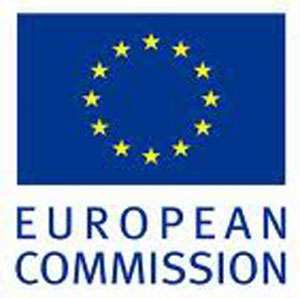The European Union is a political entity made up of 28 mostly European nations. It has a currency based on the Euro, a parliament, a court, a bank and other departments. Member nations have surrendered some of their autonomy in return for the benefits of membership. There are one hundred and thirty two operating nuclear power reactors in fourteen of the member countries. These reactors produce about thirty percent of the electricity generated in the E.U. The policy of the E.U. with respect to nuclear power is stated in the Euratom Treaty. There are three main issues; nuclear safety, nuclear safeguards and nuclear security. Member states have the authority to decide whether or not they want to use nuclear power.
Recently, ten member nations wrote a letter to the E.U. Energy Commissioner with respect to the future of nuclear power in the E.U. The letter was sent on behalf of the energy ministers of ten E.U. members including Bulgaria, France, Hungary, Lithuania, Poland, Romania, Slovakia, Slovenia and the United Kingdom. The letter points out that nuclear power needs to be an important part of the energy mix in the E.U. in the future and will allow each member state to work toward energy independence.
The letter raises a question about recent developments in the E.U. with respect to commercial power generation. Failures of energy markets recently indicate that the market itself may not be able to draw investment in nuclear power. "National support mechanisms" consistent with E.U.s laws, treaties and regulations might be needed to help support investment in nuclear power. The E.U. Commission said in 2013 that "such intervention might be necessary to secure a level playing field, overcome market failures, foster technology and innovation deployment and, more generally, support the market in delivering appropriate investment signals."
There has been a decline in E.U. energy production in recent decades. The letter writers want to halt this decline by increasing the utilization of nuclear power. They claim that nuclear power fulfils the three basic needs addressed in the Treaty on the Functioning of the European Union which include; security of supply of fuel and technology, sustainability and competitiveness. The letter states "In our view, nuclear energy, for its physical and economic characteristics, is entitled to be treated as an indigenous source of energy with respect to energy security, having an important social and economic dimension." They think that nuclear energy should be "supported by market mechanisms to create a predictable investment framework." The letter writers mention the low carbon emissions of nuclear power and point out that it is needed to fight climate change.
I have detailed many of the problems with nuclear power generation in previous posts. There are very serious questions about whether nuclear power can be safe, not lead to proliferation of nuclear weapons and not be a target for theft or sabotage. In addition, the issues raised by the treaty are also problematical.
It has been estimated that uranium production has already peaked and there will not be enough to fuel the existing reactors and the reactors under construction. Fast breeder reactors are still being developed and producing plutonium for fuel could lead to nuclear weapons proliferation. So reliable fuel supply is not guaranteed.
Just how sustainable nuclear power generation is will have to depend on very complex technology, sufficient regulation and competence of reactor operators, lack of which have caused many problems and accidents in the past.
Competitiveness is already fading with cheap natural gas and the decline in the cost of renewable alternative energy sources. And a letter calling for special considerations of nuclear power would seem to contradict the very idea of competitiveness.
After decades of billions of dollars worth of loans, loan guarantees, grants, tax breaks and other support, now nuclear power advocates are crying that they need special financial help to continue to pursue nuclear power generation. I say that it is time to listen to the marketplace which is less than enthusiastic about the commercial prospects for nuclear power.
